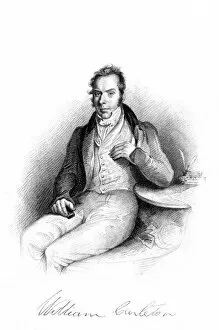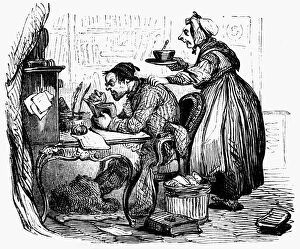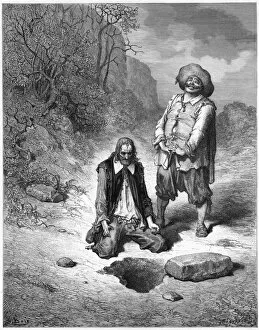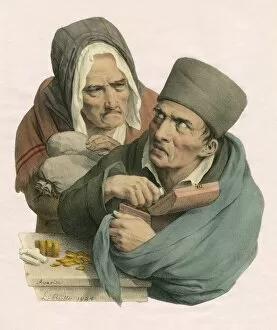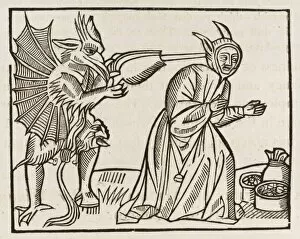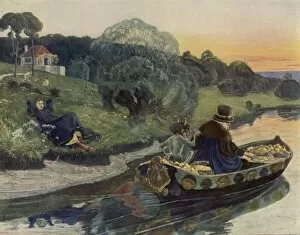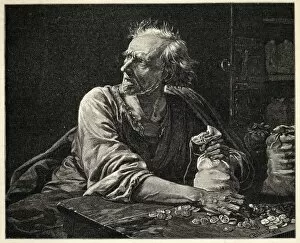Miser Collection (#5)
John Elwes, the infamous miser of the 18th century, was a man whose name became synonymous with penny-pinching
All Professionally Made to Order for Quick Shipping
John Elwes, the infamous miser of the 18th century, was a man whose name became synonymous with penny-pinching. Known for his eccentricities and extreme frugality, Elwes's life was filled with tales that would make even the most thrifty among us cringe. In one instance, he attended a performance of Les Cloches de Corneville at the Theatre Royal. Instead of enjoying the French comic opera in English like everyone else, Elwes couldn't help but calculate how much money he could have saved by not buying a ticket. As a successful money lender, Elwes amassed great wealth through his tight-fisted ways. His obsession with saving every penny led him to be featured under "M" for Miser in many an alphabet book during his time. One allegoric capricho from 1852 depicted Death bursting into Elwes's strong room - a fitting representation of how his greed consumed him until the very end. Even when faced with mortality, he clung onto his riches tightly. A Victorian satirical cartoon titled "The Miser and the Dandy" perfectly captured society's fascination with contrasting characters - one obsessed with hoarding wealth while another indulged in luxury and extravagance. It served as a reminder that there is more to life than just accumulating material possessions. Shakespeare himself touched upon this theme in The Merchant of Venice where Shylock's character embodies both greed and revenge. The play serves as a cautionary tale about allowing our desire for wealth to overshadow our humanity. Perhaps one of the most haunting depictions of miserliness can be found in "Death and the Miser, " an oil painting from c. 1515-21. The detail shows Death looming over an old man who desperately clings onto his treasures even as they slip away into eternity. In contrast to these somber portrayals, there is also humor to be found amidst the tales of misers.

